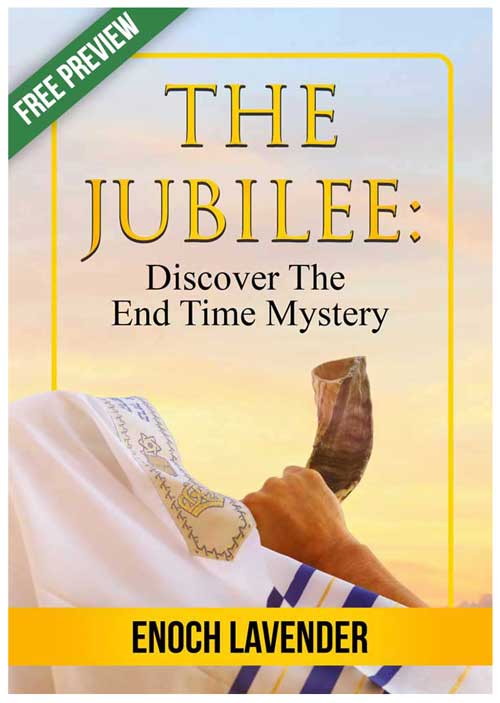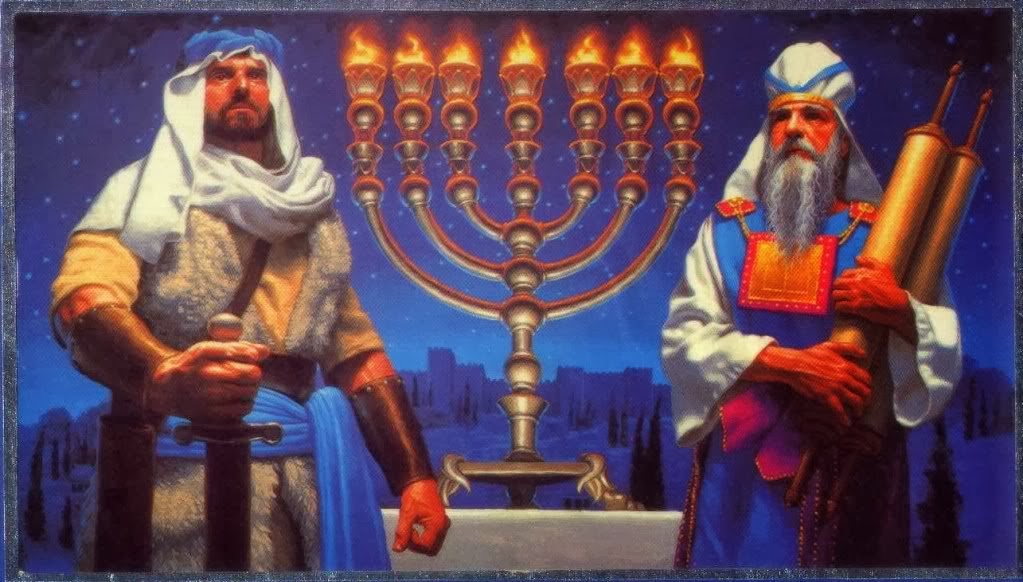‘those who know their God shall be strong and carry out great exploits…’ Dan 11:32
While this verse has been a source of encouragement to countless Christians down through the ages, few have considered its original context.
This beautiful promise comes immediately after Daniel’s description of an anti-Christ like figure from the ‘kingdom of the north’ who puts an end to sacrifices in the Temple and erects the ‘abomination of desolation’. While I believe these verses ultimately are talking about the End Times, in this article we will see how it specifically applied to the Jewish heroes of Hanukkah and how it might apply to us today.
In AD 175BC, 400 years after Daniel wrote down his prophecies, Antiochus Ephiphanes became ruler over the dominant and powerful Seleucid Empire based in Syria to the north of Israel.
At this time, Hellenism was a powerful force in society, seducing many Israelites to the Greek materialistic, pleasure seeking and idol worshipping culture. Jason – a Hellenised and corrupt Levitical priest – entered into a treaty with Antiochus, which enabled Jason to become High Priest in Jerusalem. In exchange Jason helped erected an idol in Jerusalem and built a gymnasium in town – a place that openly promoted homosexual activity. Jason’s actions split Israel – outraging those who remained faithful to the Torah, while many Hellenised Jews rallied to Jason’s side.
Three years down the track, Antiochus – who called himself ‘Epiphanes’ or the “god man made flesh” – suffered a humiliating loss in battle against his arch-rivals in Egypt. Returning from this stinging defeat, he heard of insurrection and trouble brewing in Israel and launched an enraged attack on the city of Jerusalem. When the dust had settled 80’000 Jews had been butchered. Antiochus proceeded to defile the Holy of Holies in the Temple – sacrificing a pig on the altar of God and pouring swine broth over the holy parchments. As foretold in Daniel 11:31, Antiochus then put an end to the daily sacrifices in the temple and erected an idol of Zeus in the Temple – bearing his own image on its face. The Jews at the time called it the ‘abomination of desolation’ – drawing on the imagery of Daniel 11:31. Truly it became an ‘abomination of desolation’, for as soon as the idol was erected, intense house-to-house persecution broke out across the entire land of Israel. Houses were searched meticulously, and those found keeping God’s laws were mercilessly tortured and killed.
Daniel 11:33 predicted that many of the faithful would fall by the sword and the book of Maccabees tells many such stories. One such story is that of the elderly scribe Eleazer. Eleazer’s captors desired to treat him kindly due to his advanced age and implored him to only pretend to go along with their demands. Eleazer however refused to compromise and went willingly to a torturous death, setting an example that was to be followed by many – young and old, men, women and children in the days to come. These precious Jewish heroes who paid such a high price for their faith could well be those that the writer of Hebrews refers to when he talks of those who ‘were tortured, not accepting deliverance, that they might obtain a better resurrection’ (Heb 11:35).
Antiochus’ plan to Hellenise Israel seemed to be slowly but surely working. Much was at stake, for if Antiochus’ diabolical plan had succeeded, then there would have been no nation of Israel, no books of the Law, no temple and no one keeping or knowing God’s commandments by the time Jesus was born 150 years later. But in these dark days of suffering, as Daniel had predicted, a small minority who knew their God were raised up to ‘carry out great exploits’.
Under the command Judah Maccabee, the rebels gradually gained strength. Although they were hopelessly outnumbered and facing undoubtedly the greatest super-power of their day, Judah was undaunted through firm faith in God. Antiochus sent wave after wave of to crush the rebellion – yet time and again Judah emerged victorious. Finally, Antiochus sent 47’000 men to squash Judah’s rag-tag army of around 3000 men once and for all.
Hearing of the impending onslaught, Judah and his men first spent a day in fasting and repentance, where Judah reminded his men of the great victories of Israel in the Bible. The next day the Maccabees launched a surprise attack of their own on the main enemy camp – against all odds delivering another crushing blow to their enemies. After 3 years of battles and stunning military wins, the brave Maccabees finally retook Jerusalem, cleansed the Temple and re-dedicated it to the God of Israel.
As the Jewish people today commemorate this great victory with the feast of Hanukkah, they say to each other that ‘a great miracle happened here’. Truly this was a great miracle, and one which ultimately prepared the way of the Messiah’s birth in Bethlehem some 150 years later.
Hanukkah and the End Times
The reign of Antiochus bears many parallels to the End Times and carries powerful lessons for the final end time generation. Firstly, the story of Hanukkah is an annual reminder to the Jewish people of the danger of compromising their values and entering into a treaty with a foreign ruler for peace.
Secondly, to us as Christians, the story of Hanukkah carries a powerful message of standing firm in the face of persecution. As it is becoming increasingly unpopular to stand for Biblical values, may we too count the cost, and be faithful to our Lord no matter what lies ahead.
On the other hand, let us also take courage from the Maccabees who stood against such insurmountable odds and were victorious. We too might feel like a tiny minority in our society, but truly those who know their God in these days, ‘shall be strong and carry out great exploits…’. Let us not give up on our nation or our world, but keep praying and sharing the Gospel – believing that a ‘great miracle’ can happen here in our midst as well.

Enoch Lavender was born in Australia, raised in Norway, spent time living in China and is now based in Melbourne, Australia. He has been studying Hebrew and the Jewish roots of our faith for the past decade, and has a keen interest in the Middle East from a Bible prophecy perspective.



